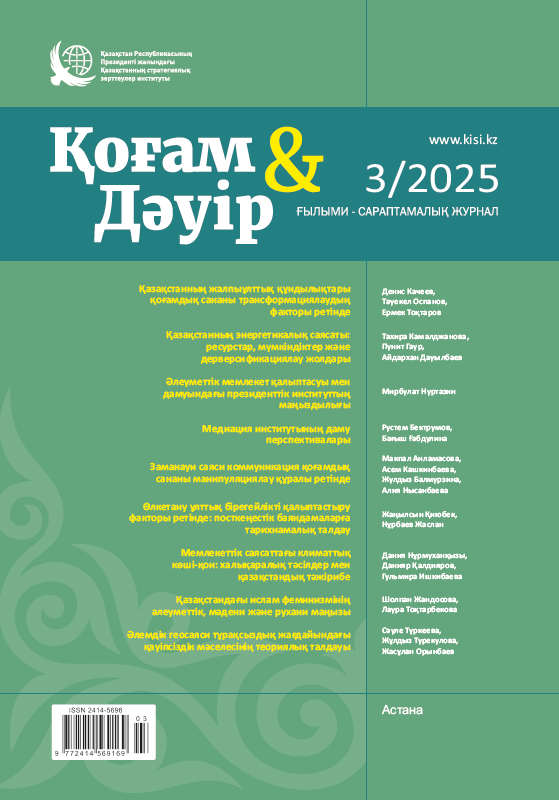Abstract
This article examines the energy policy of Kazakhstan, focusing on the importance of hydrocarbon resources (oil, gas and coal) for the country's economic development and the need to transition to a more sustainable energy system. Kazakhstan has significant oil and gas reserves, which form the backbone of the national economy and are an important source of export revenue. However, dependence on hydrocarbons poses economic and environmental challenges, highlighting the importance of diversifying the energy sector. The article analyzes key projects in the oil and gas sector, such as the development of the Tengiz, Kashagan and Karachaganak fields, and considers Kazakhstan's cooperation with international partners, including the EU and China. Particular attention is paid to energy efficiency issues and the prospects for introducing renewable energy sources as part of the transition to a "green economy". Geopolitical aspects and energy transportation issues affecting the sustainability of the country's energy complex are also touched upon.

This work is licensed under a Creative Commons Attribution 4.0 International License.
Copyright (c) 2025 ҚОҒАМ ЖӘНЕ ДӘУІР


